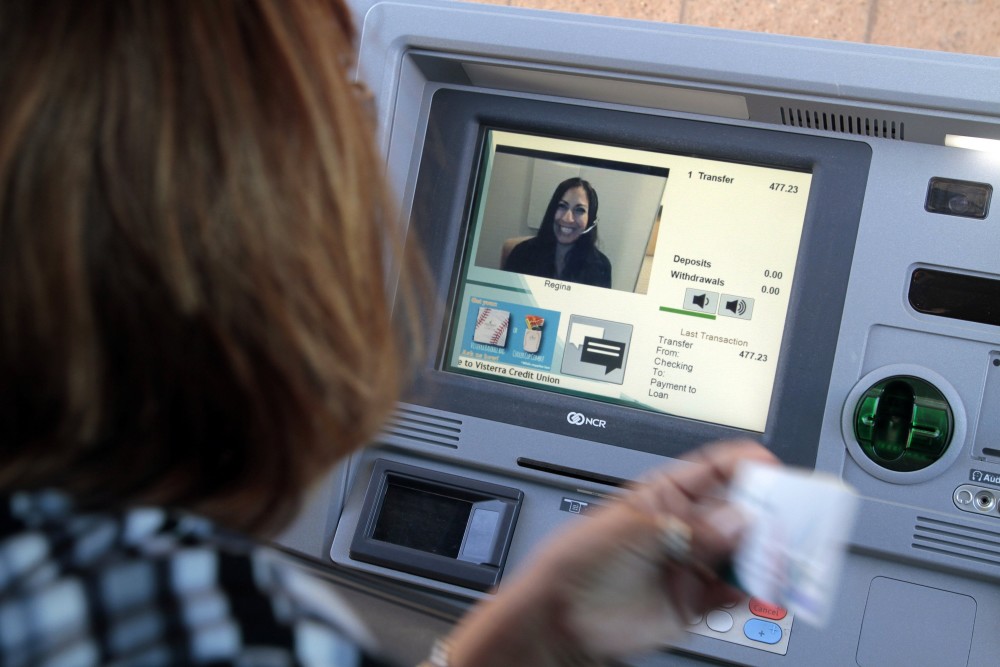By Valerie Rind
GOBankingRates.com
WWR Article Summary (tl;dr) If you are having trouble remembering all of your banking passwords, there be a solution in the near future. Many big banks, will soon enable customers to access their accounts via various biometric methods including fingerprints, eye scans, voice recognition and facial contour recognition.
GOBankingRates
For decades, banking was a mundane, routine task. You visited a local branch to open or close accounts, deposit, withdraw and transfer funds. If you wanted to apply for a mortgage or loan, you made a personal appointment with a banker.
Now, you rely on your smartphone and online banking to complete most of your transactions. Technological advancements have made online banking and mobile banking fast, flexible and convenient.
“Banking is a notoriously slow-moving industry, even in the technology age, so there likely won’t be a radical shift in the products and services offered in the next 10 years,” said Mike Catania, an engineer, mobile-payment app developer and founder of PromotionCode.org.
Although it’s difficult to predict the rate of change in banking practices, here are three banking services that might become obsolete within the next decade.
BANK BRANCHES AND BANK TELLERS
A decrease in physical bank branches over the next decade is plausible given the recent frenzied introduction of new technology to financial transactions and the changing customer demographics. Local bank branches are staffed by bank tellers who, although they are the consumer-friendly public faces of the financial institutions, could quickly be on their way out as well.
“The role of tellers has markedly decreased over the past 15 years and the next 10 years will eliminate most of the jobs in the form of more advanced ATMs,” Catania said. The number of teller jobs is expected to decline, according to the Bureau of Labor Statistics. Specifically, the 10-year outlook from 2014 to 2024 is that employment of tellers will decline by 8 percent.
“The digital transformation of society is driving a significant change to enterprises of all types, including banks, to ensure that they adapt to the evolving preferences of their current and future users,” said Ricardo Villadiego, CEO of Easy Solutions, a company that provides fraud prevention and detection solutions to financial institutions. “As millennial and future generations become the majority of the user base of a bank, this transformation will be accelerated in the institution to keep pace with the preferences of the new majority … (who) like to get things done rapidly and efficiently and don’t necessarily value the personal touch of previous generations.”
PASSWORDS AND PINS
It can be annoying to remember different alphanumeric passwords and PINs for all your online bank accounts, plus you’re required to change them regularly. However, pesky passwords and PINs are rapidly becoming features of banking past.
Many big banks, such as Bank of America, Chase, Wells Fargo and Citibank enable customers to access their accounts via various biometric methods including fingerprints, eye scans, voice recognition and facial contour recognition, according to The New York Times. Financial institutions believe these new verification methods offer increased security over passwords that can be hacked. So, in favor of these more secure methods, passwords and PINs could phase out completely in the next 10 years.
CHECKS AND PAPER STATEMENTS
For decades, people paid their bills with paper checks, whether in person at the grocery store or by mail to the electric company. Commercial banks mailed monthly paper statements to customers with checking accounts, as well, before gradually offering customers the option to obtain account information via phone.
The next step in the financial services evolution was online banking and, more recently, mobile banking. You can now view all of your banking statements, and current account balances, online or from your phone no matter where you are.
Although you can still get paper checking account statements, many banks such as Citibank and Bank of America will provide them only if you pay a fee, which might be $5 per statement. In addition, your paper statement previously included the physical checks that you wrote during the monthly period. Now, even if you receive statements in the mail, most banks do not send the canceled checks. You can get copies from your bank, but they might charge a fee. So, it’s inevitable that banks will phase out the use of all paper items altogether before long.














































































































































































































































































































































































